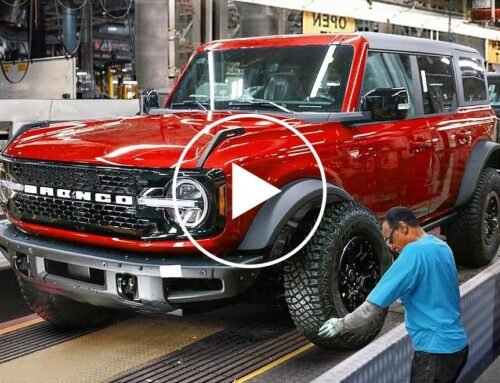Thank goodness.
Ask any car enthusiast what they hate most about winter, and they’ll probably tell you all about black ice and the salty roads that literally eat their cars alive. We’ve seen countless issues with winter roads, including Tesla Model 3 cars being destroyed by salt and even Ram 1500 trucks that have had to be recalled due to bad road conditions. Salting roads and physically clearing them of ice is a surprisingly cost-effective solution, but Eurovia, a subsidiary of the Vinci construction company in France, has come up with another solution that could make the life of public workers and drivers so much easier. The company is developing a road that uses tubing installed under the road to heat and cool it according to the season.
Le froid sévit dans le @Departement19, mais certaines de ses #routes sont moins glissantes que d’autres ????
???#PowerRoad d’#Eurovia se montre plus efficace que jamais contre le #verglas et la #neige : l’#innovation au service de la #securitéroutière et de l’#environnement ! ?? pic.twitter.com/EEHooYJ8lk— Eurovia (@Eurovia_Group) January 15, 2021
 Eurovia
Eurovia
 Eurovia
Eurovia


A study by the AAA in North America reveals that road salt damage costs car owners up to $3 billion annually, but this practice also damages our nation’s highways and bridges. That’s where new technology such as this comes into play. This new vision for ice-free roads uses tubing as a heat exchanger under the road. The system absorbs heat on hot days and releases heat when it turns cold. According to Eurovia, this new tech can heat up a road to 140 degrees Fahrenheit during winter days. As a side benefit, these roads will also be able to share the heat with nearby buildings and swimming pools. Eurovia’s “Power Road” has been tested in patches across France, and its latest attempt is a 394-foot stretch in Egletons, which is connected to the city’s biomass-fired heating network.
This new technology sounds great, but it comes at a cost: the 394-foot stretch of Power Road has cost Eurovia €250,000 (about $303,000) more than it would cost to build a regular road. That makes it economically unviable for the time being, unless implemented at points of great importance, such as nuclear reactors, hospitals and other key national points of interest that require 24/7 access to roads.
 Ford
Ford
 Ford
Ford
 Cyber Nut/YouTube
Cyber Nut/YouTube





